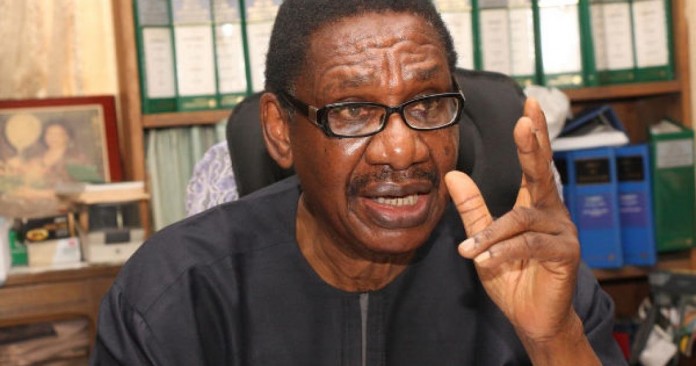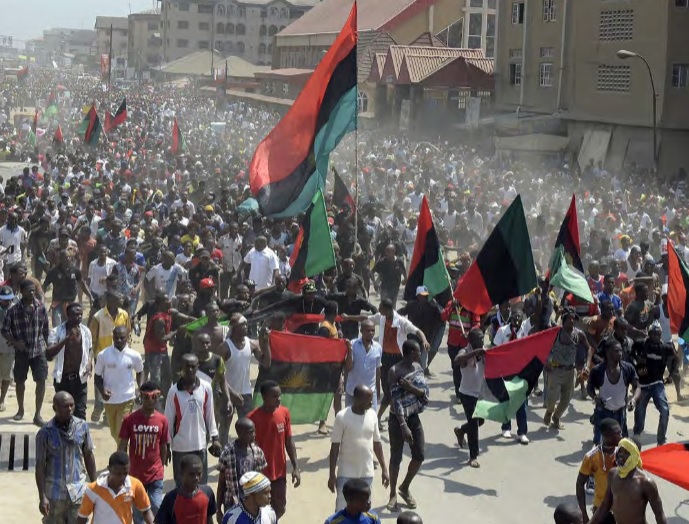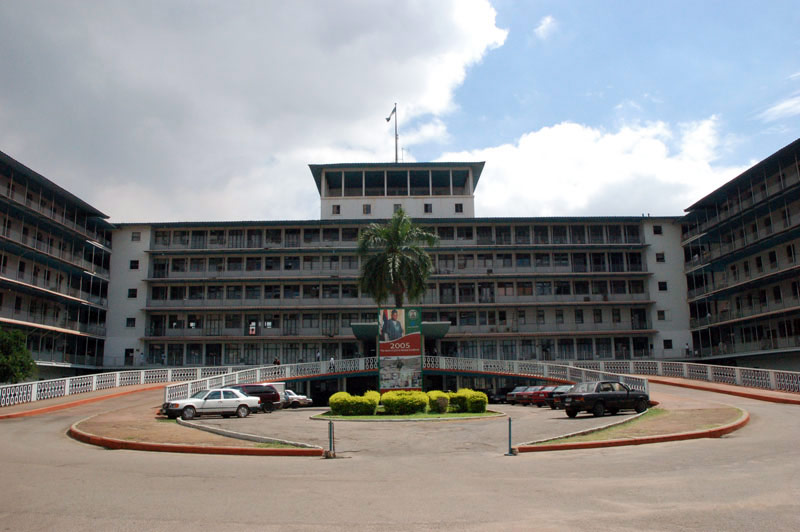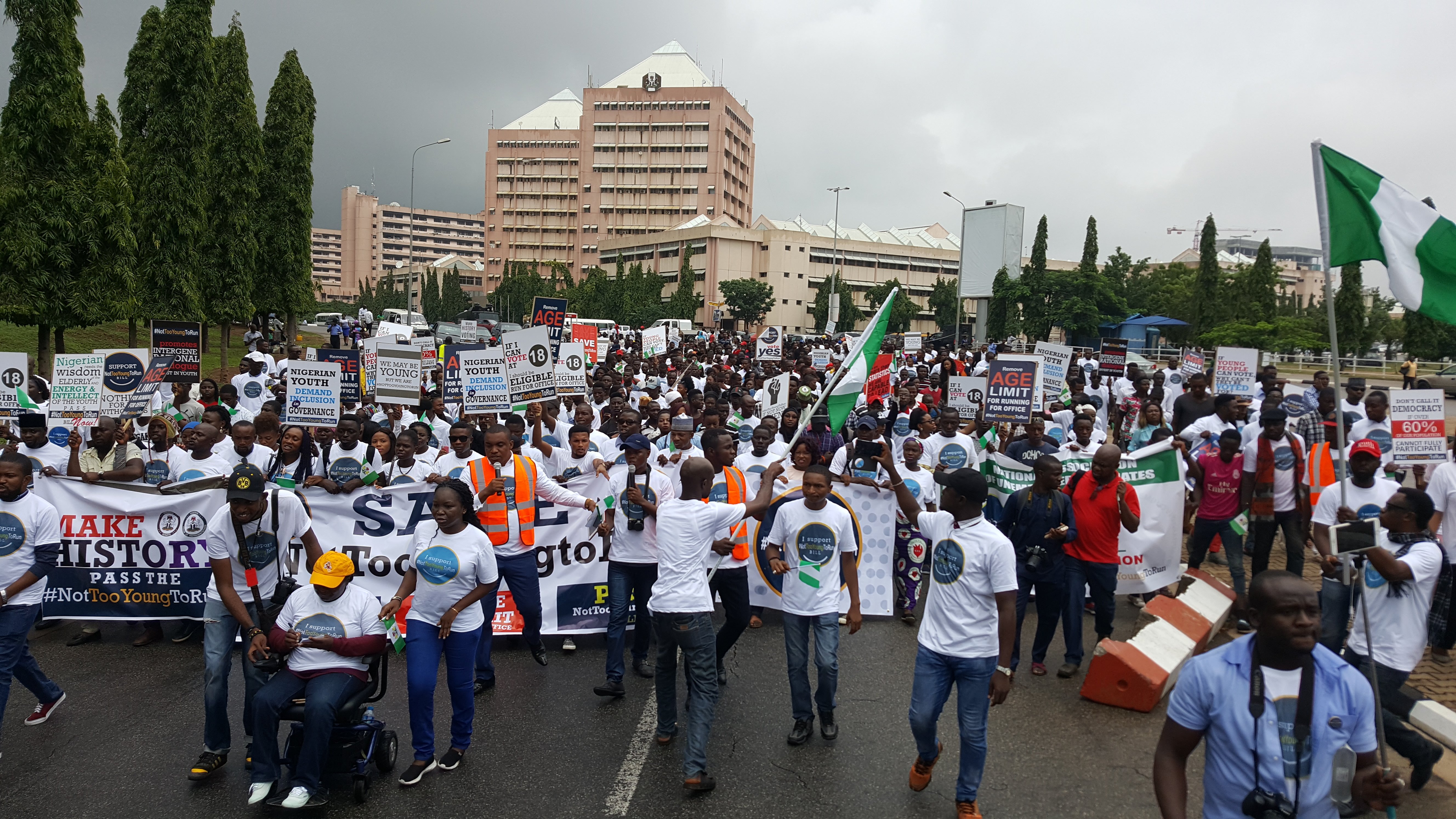BY OLAJIMI SMITH
When President Muhammadu Buhari, renowned for his integrity and anti-corruption stance, appointed renowned professor of law and civil rights activist, Prof. Itse Sagay, in August, 2015, as head of the Presidential Advisory Committee against Corruption, close friends described it as one appointment whose time had come.
Established to advise the Buhari administration on the prosecution of the war against corruption and the implementation of required reforms in Nigeria’s criminal justice system, PACAC has been instrumental in the anti-corruption war in the country.
A cerebral mind and patriot, passionate and daring for the right causes, blunt for the right reasons, Sagay was destined to head a committee like the anti-graft committee. It was only a matter of time.
Advertisement
Vice-President Yemi Osinbajo (SAN) had once said that no economy could have tolerated the level of corruption seen in Nigeria without consequences.
It was clear that, after decades of mismanagement of her resources, Nigeria needed a government like the Buhari presidency, which is determined in its fight against corruption in the country.
Like in every war, patriots, tried and tested generals of the people’s causes are needed in the forefront of the battlefield. This is where the likes of Sagay, and other heads of anti-graft agencies, come in.
Advertisement
Born on December 20, 1940, in Ibadan, Sagay, at his age, could have decided to retire to a life of moderate comfort and peace, but instead, he chose to be at the forefront of the anti-graft war. Going by his antecedents, Sagay was a man prepared for a time like this. The 76-year-old’s ideals as a disciplined believer of the law were forged in his early years. The legal luminary, who has written several books in the field of law, would have become a medical doctor, were it not for events that eventually shaped his career path and life.
Sagay, in his own words, became ‘politically aware’ at the age of 21. During that time, he was a frequent visitor at the Tafawa Balewa Square, Lagos, where he used to go to watch debates at the parliament. There, young Sagay was taken to the heights of patriotism by the beautiful minds of the likes of the late sage and Premier of the Western Region, the late Obafemi Awolowo, the late Prime Minister Abubakar Tafawa Balewa, and a former Minister of Finance, Festus Okotie-Eboh, among other cerebral minds that dotted Nigeria’s political landscape in those days.
“I would stroll to the National Assembly, then in Race Course, sit and watch debates; day in and day out. I was 20 years old then. I was watching debates. Awolowo, Tafawa Balewa, Okotie-Eboh, and all of them; I watched their debates. Zik was then in the Senate,” Sagay recalled.
That encounter also made him fall in love with the legal profession and he decided to read law because he wanted a profession where he could “contribute to the national debates and not be held up in the hospital doing operations.”
Advertisement
After two years of listening to passionate national debates and discourse, sitting at the feet of elders and sages stirred his interest in politics; Sagay had come full circle as a young man, his life’s mission fully defined in those early years, and prepared him for a life upholding the law and defending just causes.
When he was admitted to the University of Ife (now Obafemi Awolowo University) in 1962 as a law student, Sagay’s first mission was to establish a campus wing of the Action Group, a fiery political party founded by Awolowo which also played a crucial role in securing Nigeria’s independence.
On graduation from Ife, Sagay went to Cambridge University for his LL.B exams. In later years, he bagged a Ph.D.in International Law from the same university and then became a lecturer in his alma mater, Ife, where he was conferred with the professor of Law in 1979.
In later years, he also taught at the University of Benin, between 1982 and 1996. He became a Senior Advocate of Nigeria (SAN) in 1998.
Advertisement
As a lecturer, Sagay’s activism was evident, as he stood against military dictatorship and the extremities of a Vice Chancellor. He was also a part of the struggle for the actualisation of June 12, 1993 election, which the late MKO Abiola was adjudged to have won. Also, he was very vocal about his views against the then military government of the late General Sani Abacha, which led him into trouble with the then regime.
At some point, he was stopped from travelling abroad as his passport was seized by the State Security Services (SSS), and for six months, he had to report to their Ikoyi, Lagos headquarters for interrogation on his alleged ties with NADECO and other democracy activists such as the late Beko Ransome-Kuti, Gani Fawehinmi, among others.
Advertisement
No doubt, Sagay is very passionate about serving his fatherland and saving it from corruption using the instrument of his profession, the laws of the land.
“There is no group that I have taken on that has not done something very damaging and disruptive to this country, in relation to corruption. I am even trying to mellow down so that the people will not think I am doing this because of a personal reason. No, I am here based on principle,” he said of his appointment as head of the President’s anti-graft committee.
Advertisement
Well before the election of the Buhari administration in 2015, not knowing that he would lay a significant part in the equation, Sagay had joined the All Progressives Congress, then the opposition.
“I never thought I would ever have anything to do with a party in power because from the First Republic when I was a young, the parties in power had always been the most corrupt. We had the NPC, which to me is the most corrupt; the best party was the Action Group under Awolowo and I joined as a youth leader and as a student.
Advertisement
“It is just by coincidence that APC is in power and when I started supporting APC, it was not in power. It was in the opposition, so it’s a principled decision,” he recalled.
Sagay, for decades, has played significant part to nation-building through his profession. As head of the President’s committee, he was simply given a bigger political stage to do that.
It is not yet Uhuru, but like he rightly noted recently, Nigeria is finally on the right track to restoration.
“Everything was empty. So we were in a hole and this administration had to first dig us out of that hole before it started to build. That is why it was not obvious that there was any improvement in life. Now the building up has started and we can see the process now. This is a government that has come on a rescue mission,” Sagay said in a recent interview.
But not everyone is pleased, Sagay’s principles and no-nonsense attitude has earned him many admirers and a fair share of critics, as well as controversies.
Last week, the professor of law was criticised by the Senate for his speech at a recent public lecture in Lagos organised by the Society of International Law, where he was said to have made some unflattering remarks about lawmakers.
In a statement by the Senate spokesman, Senator Sabi Abdullahi, Sagay’s allegedly gave “out false and exaggerated figures about the salaries and allowances of legislators.”
It must, however, be said, that the bogus allowances and salaries of senators and lawmakers has been in the front burner of national discourse for years.
Nevertheless, Sagay is no stranger to controversy. And the 77-year-old legal luminary has seen it all. But he remains a man of principles, unflinching in his beliefs. For several years, he had been consistent in his message against alleged corruption in government and public institutions. The only thing different this time was the venue.
Despite the strongly worded statement, Sagay remains unruffled in his quest with the Buhari government to sanitise a system riddled with corruption.
Some have also accused the administration and Sagay’s committee for the lack of convictions against alleged looters. However, the legal luminary had always insisted that the fight is a long and hard one, but which would set the country on the right path to economic recovery.
“I think the mistake the generality of Nigerians are making is that they only rate the war against corruption on the basis of the number of convictions, but the war is much wider than that. A lot has been done. For example, high profile looting at the executive level has been eliminated. Nobody dares take a kobo that does not belong to them or misuse any public fund.” Sagay said in an interview.
Despite the controversies and criticisms, Sagay is one who lives without regrets, either for his words or actions. He once said he made a deliberate choice to “be forthright, principled, upright and blunt” and not to “pretend, be sycophantic, lick boots, be malleable and controllable.”
“That’s the kind of system we run in Nigeria. I made the choice that I would rather be myself and stay out,” he added.
A man of modest tastes, serving the nation has always been his passion and calling, striving in his own way, even if not agreeable with a section, to make his country and world a better place than he met it.
Sagay, for decades, has played significant part to nation-building through his profession. As head of the President’s anti-graft committee, Sagay was simply given a bigger stage to do that. Fighting against corruption and societal ills is exactly what the legal luminary has been doing all his life. In an interview, he noted that his appointment offered him the “privilege to work in a milieu about which I’ve been advocating. I now have official authority to perform in an area where I’ve been speaking as a private citizen.”
At 76, there are still a few intellectuals like him, willing to go the extra mile with their skills, intellect, resources, and literally put their lives on the line for national good.
This is the more reason why all Nigerians should join hands and support him. To rephrase a quote by the Vice President said, “this nation needs everyone to stick together to fight corruption and other national ills side by side; including elites who insists on justice even where our friends are at the receiving end.”
Smith sent in this piece from Abuja
Views expressed by contributors are strictly personal and not of TheCable.
Add a comment






